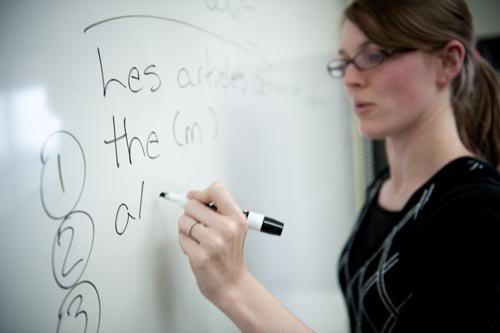
“לארה"ב. cannot improve its education system for all or even most children by keeping its present focus on charter schools, more testing, teacher evaluation and union bashing. None of those feature in the best-performing countries. There must be a focus on helping all schools improve, combining pressure with lots of support. That is how to improve system performance” — DR. בן לוין.
DR. Levin is a Professor and Canada Research Chair in Education Leadership and Policy at the Ontario Institute for Studies in Education, אוניברסיטת טורונטו. He has worked with private research organizations, מחוזות הספר, provincial governments, and national and international agencies, as well as building an academic and research career. He served as Deputy Minister (chief civil servant) for Education for the Province of Ontario from 2004 ל 2007 and again in 2008-09. מ 1999 דרך 2002, he was Deputy Minister of Advanced Education and Deputy Minister of Education, Training and Youth for the Province of Manitoba. He has published five books, most recently, How to Change 5000 בתי ספר. His current interests are in large-scale change, poverty and inequity, and finding better ways to connect research to policy and practice in education.
איזה סוג של מערכת חינוך יאפשר למדינה יש את הכישורים הדרושים כדי להתחרות אנשים בעולם?
It’s a very broad question, but essentially the way I would answer it is that you need a system which is both high quality and high equity. זה, large numbers of students who are achieving high levels of skill and confidence, and where the gaps that are based on extraneous factors are small.
What are your views on the standardized testing currently used?
Having good reliable data on student progress and outcomes is essential to making progress. There are lots of indicators other than tests, which are only one measure. לדוגמא, שיעורי סיום, participation and success in tertiary education, labor market experiences, proportions of kids referred to special education, and proportion of kids making a year of progress each year are also relevant measures. Where we are going to use testing, we need to make sure that the tests are of a high quality and linked to curriculum or like PISA, we need to clearly identify important competencies. Test results and other outcome data should not be used punitively; you cannot scare people into excellence.
Do you think the systems we have in place are sufficient to test the broad range of students?
There is no measure that is perfect. Every measure is partial and every measure has error in it, so one needs multiple measures to form a better picture. PISA has tried hard to get at critical thinking, and the tests in Ontario on elementary literacy and numeracy have a very substantial component of critical thinking. Critical thinking isn’t some abstract skill. You have to be thinking critically about something. We also know that most teaching is focused on basic skills, not on higher order skills. We’ve got years and years of evidence showing this.
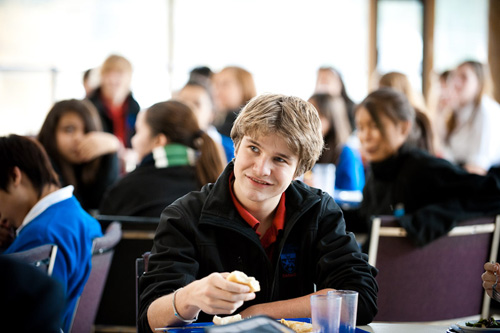
How do you see the importance of good teachers in the education process?
Good teachers are critical. It is an absolutely vital factor and the educational systems that are most successful are paying lots of attention to recruiting, retaining, and developing good teachers. They are also providing a system that encourages and fosters good teachers. עם זאת, the focus cannot be only on teachers as individuals. Teaching is a social process, so good teachers can only ply their craft in well led and reasonably resourced schools.
How do you see the role of parents in this process?
Parents and families are very important. Family background continues to be the single most powerful predictor of student outcomes. That’s been the case as long as we’ve been measuring and it continues to be the case in every study. We know a lot about how to engage parents more effectively in students’ education but we don’t always use that knowledge.
What can be done to better address the emotional well being of students in an environment where competition is more intense than ever before?
למרבה המזל, I don’t think that in Canada we are living in that intense world of competition in schools. My perception of this is that in Canada the proportion of kids who are subject to intense pressure is quite small. Frightening kids into working hard would be a mistake. It is far better to engage people in things that they care about, generating real effort that does not come out of fear. There is sometimes too much mindless homework.
Competition to get into our best institutions has significantly increased the pressure on students. Can you share your experiences and comparisons on the Canadian college system?
Canada does not have the same kind of stratified higher education system as in the US. The US higher education system has institutions that are superb and institutions that are not very good at all. Canadian institutions are not all identical in quality, but in this country it doesn’t really matter where you do your undergraduate degree. We don’t have institutions that take everybody they can get and other institutions that only take 1 ב 20. I think ours is a better system. You want every institution at least to be good; having some that are great and some that are terrible doesn’t work at all in education. The whole goal is that everybody gets a good education. There is an annual ranking of Canadian universities done by one of our magazines, but we simply don’t have the same kinds of inequalities in higher education.
מנקודת מבט רחבה יותר, does your country’s definition of educational excellence take into account the quality of life of individuals and of society?
We try to do that. לדוגמא, in Ontario for the last five years, we added thousands of teaching positions, almost all of them in areas like art, מוסיקה, physical education, or languages. So I don’t think there’s an inconsistency between saying we value a broad education and saying we have to ensure our kids can learn to read. We have got to learn to do both things, and I would say Canadian schools do both those things reasonably well by world standards, as judged by our outcome data. (הערת העורך: Canada ranks among the top 10 countries in all categories of the PISA test.)
Any final thoughts on education systems?
There is a conventional wisdom about education, which is that it’s all about economic competitiveness, that I think is wrong. But there is a conventional critique of education which is that’s it’s too much about economic competitiveness and hard skills, that I also think is wrong. We don’t want an educational system that is factory-like in the way it treats young people. That can’t be successful. But equally, the idea that we can have an unstructured, everybody-do-their-own-thing education system, I also find unappealing because the result of that will be that most people will not get a good education. It is possible to balance the concern for real skills with the concern for a broad education, and Canada does that about as well as anyone.
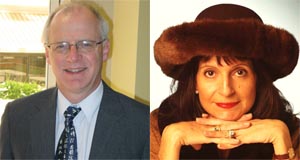

בגלובל החיפוש לחינוך, להצטרף C. M. רובין ומנהיגי מחשבה מוכרת בעולם כולל סר מייקל ברבר (בריטניה), DR. ליאון בוטשטיין (ארה"ב), DR. לינדה דרלינג-Hammond (ארה"ב), DR. Madhav אוון (הודו), פרופ 'מיכאל Fullan (קנדה), פרופ 'הווארד גרדנר (ארה"ב), פרופ 'איבון הלמן (הולנד), פרופ 'קריסטין Helstad (נורווגיה), פרופ 'רוז Hipkins (ניו זילנד), פרופ 'קורנליה הוגלנד (קנדה), גברת. שנטל קאופמן (בלגיה), פרופ 'דומיניק לפונטיין (בלגיה), פרופ 'יו לאודר (בריטניה), פרופ 'בן לוין (קנדה), פרופ 'בארי McGaw (אוסטרליה), פרופ 'R. נטריגין (הודו), שרידהר ךאג'גופלן (הודו), סר קן רובינסון (בריטניה), פרופ Pasi Sahlberg (פינלנד), אנדריאס שלייכר (PISA, OECD), DR. דוד שפר (ארה"ב), DR. קירסטן Immersive Are (נורווגיה), קנצלר סטיבן ספאן (ארה"ב), איב Theze (Lycee Francais ארה"ב), פרופ 'צ'רלס Ungerleider (קנדה), פרופ 'טוני וגנר (ארה"ב), פרופסור דילן Wiliam (בריטניה), פרופ 'תיאו Wubbels (הולנד), פרופ 'מייקל יאנג (בריטניה), ופרופ 'Minxuan ג'אנג (סין) כפי שהם לחקור שאלות חינוך תמונה הגדולות שכל המדינות מתמודדות היום. גלובל החיפוש לחינוך עמוד קהילה
C. M. רובין הוא המחבר שתי סדרות מקוונות רבים קוראות שלהיא קיבלה 2011 הפרס אפטון סינקלר, “גלובל החיפוש לחינוך” ו “איך וויל אנחנו קראו?” היא גם מחברם של שלושה ספרים רבי מכר, כולל אליס בארץ הפלאות Real.
עקוב C. M. רובין בטוויטר: www.twitter.com/@cmrubinworld


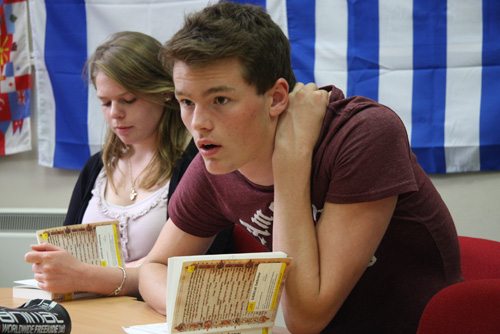
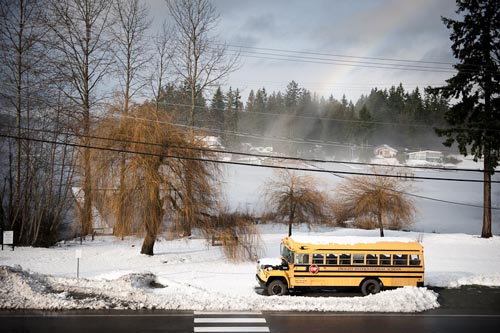
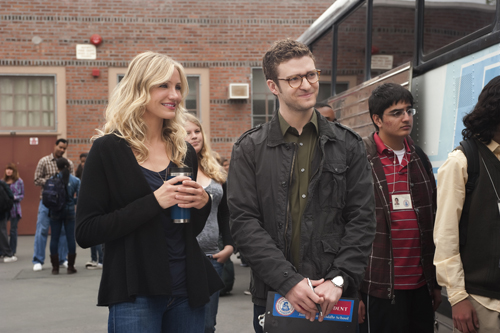
תגובות אחרונות